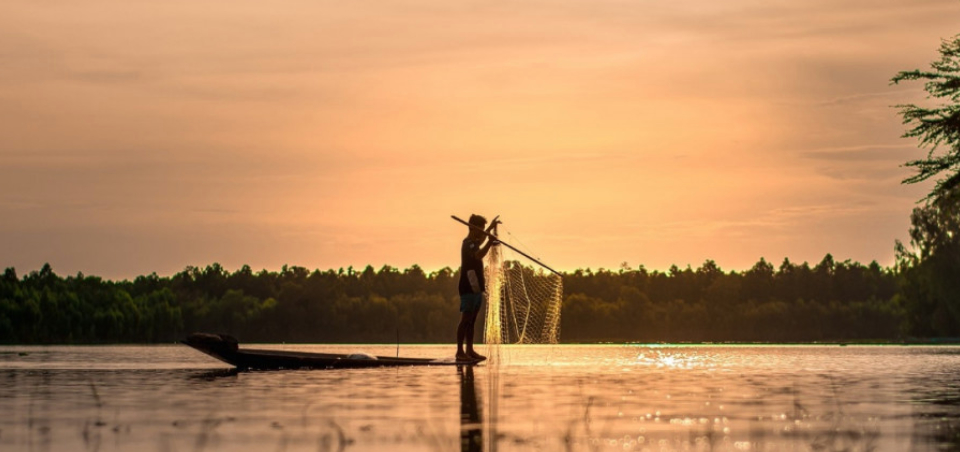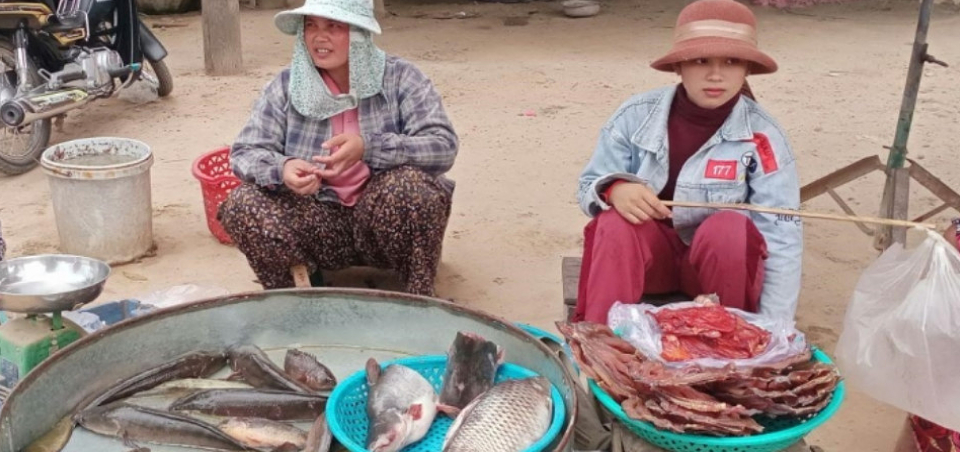COVID-19 opens a can of worms for fisherwomen in Cambodia
Date:

“I’m used to hearing the sound of laughter every morning as my customers come to buy fish,” says 37-year-old Huon Tim. “But it’s very quiet these days in the village.”
For Huon, who runs a small fish and produce stall at the local market in Kampong Por, in Cambodia’s Takeo province, these are desperate times. Cambodia boasts one of the world’s most productive freshwater fisheries, with nearly 2 million people employed in the sector. Yet with the COVID-19 crisis, many small-scale family fishing operations are finding themselves in rough waters.
Before the pandemic, Huon’s day began at the crack of dawn with a 120-kilometre round trip to source fish, fruit and vegetables from the neighbouring province. By the end of the day, Huon could expect to take home about 40,000 Riels (US$10). This meagre income paired with her husband’s was enough to run the household, send their two children to school and care for elderly parents.
Now, although Cambodia has reported only 125 COVID-19 cases in all, restricted mobility has reduced the demand for fish products. Where demand exists, supply chains have been severely disrupted.
Huon’s business has taken a significant hit. Procuring fish became harder and with people living in fear of exposure and choosing to stay away, Huon now only takes in about 20,000 riels (US$5) a day, barely selling any fish.
It is a challenge for Huon to dry and freeze her unsold fish. Ice and refrigeration don’t come cheap and families like Huon’s are in desperate need of electricity subsidies. Meanwhile, a troubling water crisis looms over the community, caused by drought and exacerbated by climate change. Surplus water to store fish, irrigate fields or even for proper hand-washing, is a pipe dream.

Cost-effective renewable energy would be a lifeline for people like Huon, according to Parimita Mohanty, Programme Management Officer, Renewable Energy for UNEP Asia and the Pacific. “There is a massive opportunity to prioritize renewable energy innovations for essential services like water purification, cold storage, refrigeration for healthcare, and irrigation. Building renewable energy into existing supply chains can help women like Huon recover in a climate-resilient way.”
A rapid assessment undertaken in May by UNEP and partners through the EmPower project, showed difficulties like Huon’s were found across Takeo and Pursat provinces. For those most dependent on natural resources and already affected by climate change in normal times, the pandemic and the lockdowns have meant much greater hardship. Female-headed households are often one crisis away from slipping below the poverty line.
Channelling COVID-19 recovery funds strategically will be vital to support these families, says Mohanty. “Currently, governments are setting up recovery funds. But easing conditions on collaterals and engaging more women-led SMEs in natural resource sectors will be important.”
It’s also important that the Government of Cambodia gets the word out, according to Sorn Sunsopheak, Deputy Director of the Programme Division at the National Committee for Subnational Democratic Development.
“Many communities rely on government hand-outs but where there are financial incentives and schemes available for enterprises, women often don’t know about them. We need to work together with the private sector, financial institutions and local civil society to make sure communities are aware, engaged and can come out of this crisis in a just and sustainable way.”
Despite the challenges, the economic recovery from the pandemic has the potential to provide a more sustainable and prosperous life for people like Huon. Getting the recovery right is not just an opportunity to get back to normal, but to build back better.